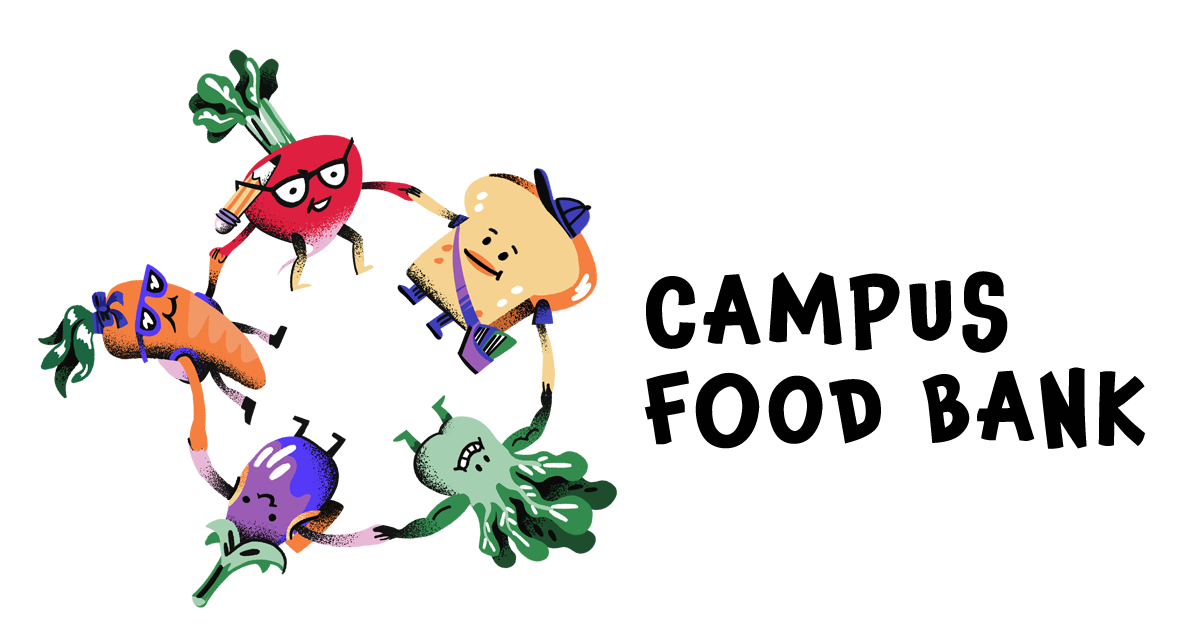NEW: Click to learn about the CFB in اَلْعَرَبِيَّةُ, বাংলা, tiếng Việt, اُردُو, українська мова, español, فارسی, 官话, हिन्दी, 广东话
Campus Food Bank Society is an independent charity supporting University of Alberta students, faculty, staff, and recent graduates. We are located in SUB 1-81.
Students should hunger for knowledge, not food.
Struggling to afford groceries? Become a client ⟶
Learn about our other food access programs ⟶
Support our work with a donation ⟶
Client Solidarity Statement
While Campus Food Bank has been managing internal challenges in the last few years as our organization grows rapidly to meet demand, we are also carefully watching the world around us, on campus and beyond. As a staff team, we feel it is important to articulate that Campus Food Bank stands in solidarity with all of our clients facing food insecurity.
There is no shame in needing help to access food. Food access is limited by inequitable systems, not by individuals’ actions. Food Banks Canada is reporting that 53% of people in this country are worried about putting food on their table this fall. Nationally, food bank usage is up 50% over last year. On university campuses, graduate students (66% of our clients) and international students (73% of our clients) especially face financial challenges due to structural limitations— on earnings, on work hours, and on access to other resources. On campus and beyond, we know that our neighbours who are Indigenous, Black, queer, trans, newcomers, managing mental and physical disabilities, and/or supporting dependents are much more likely to need support accessing food and other basic needs. None of this is the fault of any individual experiencing precarity.
Last year, the U of A Graduate Students’ Association reported that the majority of graduate students here make less than $35,000 annually. More than 20% of our clients are using other food banks in addition to ours because funds are tight; this takes precious time and energy away from being a student. In our spring client survey, we ask for the top reasons for using the food bank. This year, for the first time, the response “employed but low income” was in the top three. Alberta is now tied for the lowest minimum wage in the country, yet average rent rose 15% last year, one of the highest increases nationally.
International students who come to this country seeking knowledge and advancement spend too much time and money accessing the basics while dealing with racism and high risk of fraud being perpetrated against them. This is in addition to the challenges of learning the systems and social norms of a whole new country.
At Campus Food Bank, our staff and volunteer team hope that using any of our food support programs alleviates some stress from our clients’ busy lives. We acknowledge that our programs are not enough to create campus food security, so we have updated our organizational mission to “Champion immediate and systemic food accessibility at the U of A.” We stand with our clients and will be working diligently this year to better integrate client voices in decision-making at this organization.
- The Campus Food Bank staff team

